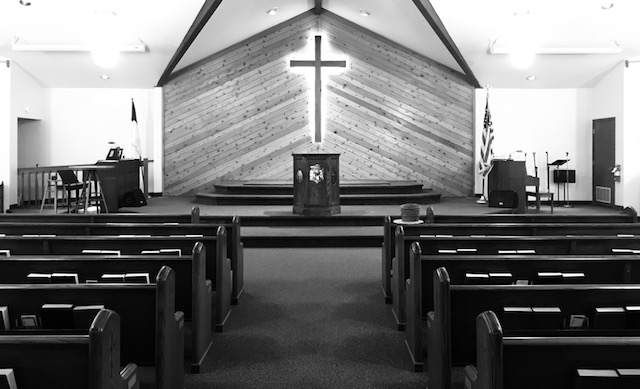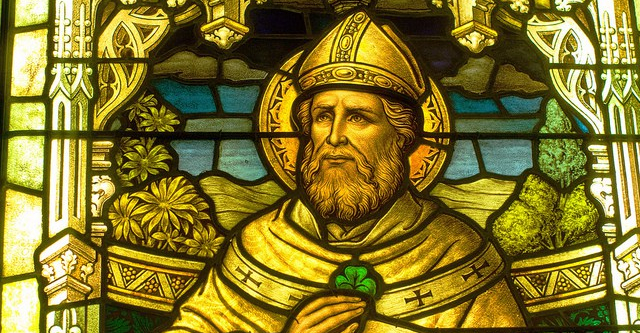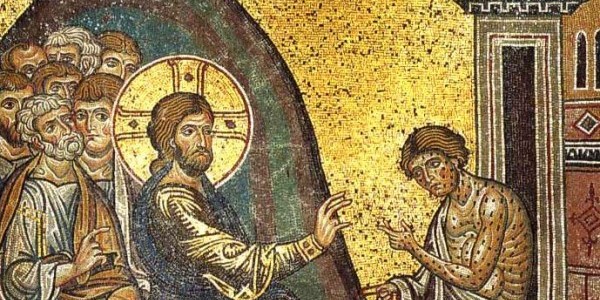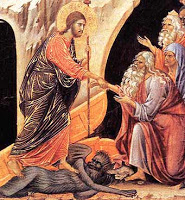
What in the world is going on?
We are halfway through the year and already 2020 is one for the history books. In the past six months, our country has dealt with the tragic death of a sports star, a worldwide pandemic, economic upheaval, massive protests and civil unrest. And to make it even more interesting, over the next several months, we will observe and participate in a contentious presidential election.
Adding to this chaos, on a couple of occasions over the past few months, news broke that can literally be categorized as ‘otherworldly.’ First of all, on April 29th the Pentagon released videos of apparent UFOs (“Pentagon officially releases UFO videos”). This further supported what some already claim to be true – the existence of alien lifeforms. And then, a few weeks later, news headlines noted that scientists detected an alternative parallel universe (“Scientists may have spotted signs of a parallel universe where time runs backward.”).
So, what in the world is going on? And – just perhaps – there is more to this world than what meets the eye!
While many may doubt the validity of these particular reports, the Bible does affirm the reality of what some refer to as ‘the paranormal.’ All throughout the Scriptures, the existence of a spiritual dimension with spiritual entities is assumed. And as physicists utilize the string theory in attempt to detect and describe these hidden dimensions, the Bible has already declared several truths about the spiritual world that exists alongside our physical world.
1. IT IS REAL. The spiritual dimension truly exists. It exists, because God willed it into existence. Colossians 1:16 specifically identifies Jesus as its Creator, “For by him all things were created, in heaven and on earth, visible and invisible, whether thrones or dominions or rulers or authorities—all things were created through him and for him.” This verse tells us that Jesus created the invisible world and all the entities – every angelic being, both good and evil – that exists within it.
Ever since the creation of Creation, the spiritual realm has existed in the midst of the rest of the world. And, even though tangible evidence is impossible to attain, the Bible contains many eyewitness reports of its reality. In 2 Kings 6, the prophet Elisha found himself surrounded by his enemy’s army, chariots, and horses. Upon the prophet’s servant seeing the forces that had gathered to confront his master, the text states that “Elisha prayed and said, ‘O LORD, please open his eyes that he may see.’ So the LORD opened the eyes of the young man, and he saw, and behold, the mountain was full of horses and chariots of fire all around Elisha” (2 Kings 6:17). Elisha’s servant was privileged that day to observe what was going on simultaneously in the spiritual dimension. And what he witnessed – a massive angelic army – gave him great encouragement and comfort in an otherwise troubling time.
The spiritual world is just as real today in 2020. Now, while it cannot be observed on demand, it needs to be recognized as a highly active dimension of reality. And as the physical world appears to be spinning out of control, one wonders what is occurring right now in the invisible realm. If God were to grant us spiritual eyes to see, I believe we – just like Elisha’s servant – would be blown away.
2. IT IS A BATTLEFIELD. While we cannot ‘see’ what is happening in this dimension, the Bible depicts the spiritual world as a place of conflict. At the beginning of Daniel 10, the Old Testament saint, Daniel, found himself deeply troubled upon receiving a prophetic vision. After three weeks of seeking the vision’s meaning through fasting and prayer, Daniel was visited by a glorious heavenly figure who comforted and assisted him in understanding its significance. And, while speaking to Daniel, this majestic being also revealed that his arrival would have come sooner, however, “the prince of the kingdom of Persia withstood (him) twenty-one days, but Michael, one of the chief princes, came to help (him)” (Daniel 10:13). His delay was not caused by a human monarch. Instead, this verse indicates that Daniel’s heavenly visitor was temporarily blocked by an evil angel – a powerful demon – and only with the assistance of God’s archangel Michael was he able to reach Daniel and minister to him.
The Apostle Paul was well aware of the spiritual world’s combative nature. And, in Ephesians 6:12, he informed his Christian readers that they too were engaged in its battle, “For we do not wrestle against flesh and blood, but against the rulers, against the authorities, against the cosmic powers over this present darkness, against the spiritual forces of evil in the heavenly places.” This knowledge reoriented his reader’s mindset. No longer were they to be completely consumed with the physical world and its happenings. Now they were to give greater consideration to the spiritual realities that existed in the midst of and oftentimes deeply influenced and interfered with their world.
The same spiritual war spoken of throughout the Bible continues on today in 2020. In the remainder of Ephesians 6, Christians are instructed to put on spiritual armor that will protect them from their dark and evil enemies. What is interesting, however, is that in verse 17, Paul identifies the believer’s only offensive weapon as “the sword of the Spirit, which is the word of God.” The only tool able to attack and make progress in this ongoing spiritual war are the Scriptures. Therefore, facemasks, pithy tweets, political power, and other worldly devices not based upon the Bible are rendered useless in this battle. It is only when Christians proclaim the Gospel of Jesus Christ and present – with both their words and deeds – the Truth of the Scriptures, will they be able to “destroy strongholds…(and) arguments and every lofty opinion raised against the knowledge of God, and take every thought captive to obey Christ” (2 Corinthians 10:4-5).
3. IT IS RULED BY JESUS. The Bible is emphatic about the authority of Jesus Christ. And, specifically, it declares that not only is Jesus the Creator of the spiritual realm, but that he is also its Lord. Matthew 28:18 affirms this truth when it quotes Jesus telling his disciples, “All authority in heaven and on earth has been given to me.” With this merism, “heaven and earth,” Jesus declared that his authority is absolute. There is not a square inch of creation nor a dimension that string theorists have uncovered (or even yet to discover!) that escapes his complete reign and rule. As the psalmist acknowledges in Psalm 103:19, “The LORD has establish his throne in the heavens, and his kingdom rules over all.”
Jesus’ absolute authority is clearly and continually attested to throughout the Gospels. In Mark 1:21-28, Jesus found himself teaching in a synagogue on the Sabbath. And as he proclaimed and presented ‘the sword of the Spirit’, Jesus became engaged in a spiritual battle. As he preached the Bible, the text states that “a man with an unclean spirit…cried out, ‘What have you to do with us, Jesus of Nazareth? Have you come to destroy us? I know who you are – the Holy One of God” (Mark 1:23-24). This demon, who resided within this Synagogue attendee, obviously became disturbed by the presence and preaching of Jesus. It recognized Jesus’ authority and feared for its ‘well-being.’ And then, in a move even more astonishing, Jesus exercised his power over the evil spirit by simply ordering it to leave, “But Jesus rebuked him, saying, ‘Be silent, and come out of him!’ And the unclean spirit, convulsing him and crying out with a loud voice, came out of him” (vv. 25-26). With a word, the Bible says Jesus created the spiritual realm. And, with his word, this passage shows that Jesus completely rules over it as well.
As we observe our chaotic world and wonder, “what is going on?!?”, we need to recognize that there truly is more to it than what meets the eye. There is a spiritual dimension that influences and interferes with what we can see. There is a spiritual realm where spiritual entities battle over good and evil. And there is a spiritual reality that is engaged every time we proclaim and present the Truth of God’s Word.
So, as we enter into the second half of 2020, it is all too important to know and keep in mind that ultimately Jesus is in absolute control. His powerful rule and permanent reign will continue to extend over every aspect of creation, over every created thing, over every dimension of reality, over every alternative parallel universe, and even over every alien… Well, that is, if they truly exist!





 Many people lack resolve. Their lives fail to demonstrate a sustained sense of ambition or direction. When difficulties arise, they readily succumb to the hardship standing in their way. And when distractions pop up, they are all too easily amused and diverted from accomplishing their goals. As a result, their lives quickly pass them by and are essentially wasted.
Many people lack resolve. Their lives fail to demonstrate a sustained sense of ambition or direction. When difficulties arise, they readily succumb to the hardship standing in their way. And when distractions pop up, they are all too easily amused and diverted from accomplishing their goals. As a result, their lives quickly pass them by and are essentially wasted. This past week, I had the flu and was kind and generous enough to give it to the rest of my family. Let’s just say, it was a long week in my household. On Friday of this past week, Mr. Mike Ilitch, a local legend and owner of the Detroit Red Wings and Detroit Tigers, passed away. It proved to be a tough weekend in the state of Michigan and the city of Detroit.
This past week, I had the flu and was kind and generous enough to give it to the rest of my family. Let’s just say, it was a long week in my household. On Friday of this past week, Mr. Mike Ilitch, a local legend and owner of the Detroit Red Wings and Detroit Tigers, passed away. It proved to be a tough weekend in the state of Michigan and the city of Detroit. us is confronted by a man who was possessed by a demon. What is truly remarkable is how Jesus rid this man of his spiritual oppressor. He did not recite a specific prayer or creed. He did not invoke a higher power. He did not act out a ritual. Jesus simply spoke, “Be silent, and come out of him!” (v. 25). And with these words, Jesus commanded the demon to leave and the demon could not do anything else but simply obey!
us is confronted by a man who was possessed by a demon. What is truly remarkable is how Jesus rid this man of his spiritual oppressor. He did not recite a specific prayer or creed. He did not invoke a higher power. He did not act out a ritual. Jesus simply spoke, “Be silent, and come out of him!” (v. 25). And with these words, Jesus commanded the demon to leave and the demon could not do anything else but simply obey! Growing up, we all had them. Some were better than others. A couple probably terrified us. And a few maybe perhaps even had a profound and powerful influence on our lives. I am talking about teachers.
Growing up, we all had them. Some were better than others. A couple probably terrified us. And a few maybe perhaps even had a profound and powerful influence on our lives. I am talking about teachers.